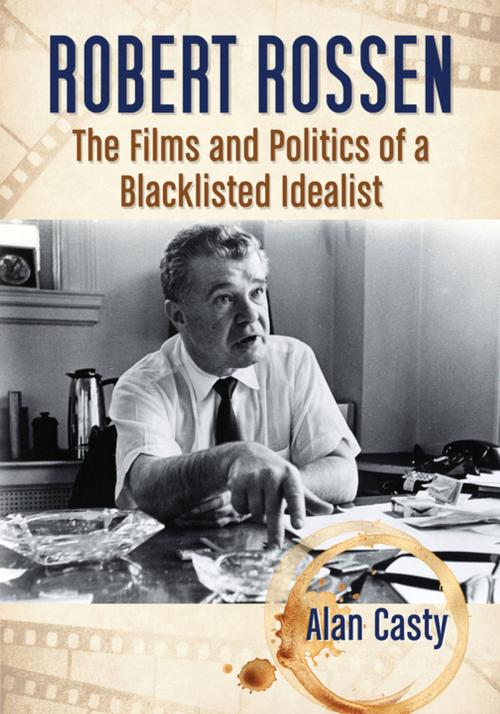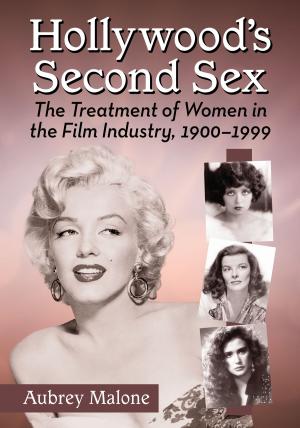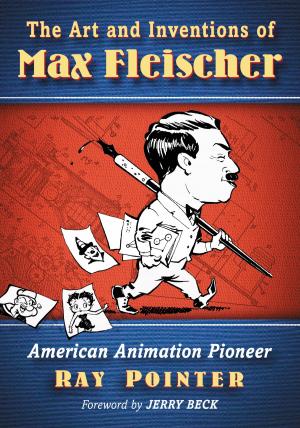Robert Rossen
The Films and Politics of a Blacklisted Idealist
Nonfiction, Entertainment, Performing Arts, Film, Biography & Memoir| Author: | Alan Casty | ISBN: | 9780786493173 |
| Publisher: | McFarland & Company, Inc., Publishers | Publication: | March 13, 2013 |
| Imprint: | Language: | English |
| Author: | Alan Casty |
| ISBN: | 9780786493173 |
| Publisher: | McFarland & Company, Inc., Publishers |
| Publication: | March 13, 2013 |
| Imprint: | |
| Language: | English |
This book calls for a re-evaluation of the films of Robert Rossen. Over a 30-year period, he was the most accomplished writer and director who was also a longtime member of the Communist Party, but his achievement has not been recognized, his films have been belittled or ignored, his legacy denied. Rossen’s films reflected his times and the American scene with a dramatic intensity and personal expression unmatched by any other filmmaker of the period. The stages of his political journey, from idealism about Communism to his rebellion against the Party’s betrayal of those ideals, influenced the rendering of his concerns and themes—the flaws of human nature, the complexities of motives, the paradoxes of betrayal, personal and political. Yet Rossen testified against his fellow filmmakers, and so his morals and character have been denounced, his work diminished as fatally marred by his moral flaws. The opposite is true. Here is a thorough analysis of each of his 22 films and their place in the developing themes of his body of work. It integrates this study of the films with a documented narrative of his relationship to the Party, its history and conflicts, its duplicities—especially the relations of the Party and its followers to the oppressions of the Soviet Union. And so it challenges the validity of the conventional wisdom about the moral issues of the blacklist period.
This book calls for a re-evaluation of the films of Robert Rossen. Over a 30-year period, he was the most accomplished writer and director who was also a longtime member of the Communist Party, but his achievement has not been recognized, his films have been belittled or ignored, his legacy denied. Rossen’s films reflected his times and the American scene with a dramatic intensity and personal expression unmatched by any other filmmaker of the period. The stages of his political journey, from idealism about Communism to his rebellion against the Party’s betrayal of those ideals, influenced the rendering of his concerns and themes—the flaws of human nature, the complexities of motives, the paradoxes of betrayal, personal and political. Yet Rossen testified against his fellow filmmakers, and so his morals and character have been denounced, his work diminished as fatally marred by his moral flaws. The opposite is true. Here is a thorough analysis of each of his 22 films and their place in the developing themes of his body of work. It integrates this study of the films with a documented narrative of his relationship to the Party, its history and conflicts, its duplicities—especially the relations of the Party and its followers to the oppressions of the Soviet Union. And so it challenges the validity of the conventional wisdom about the moral issues of the blacklist period.















